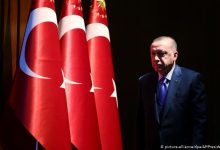
The sanctions Washington slapped on Ankara last week over its military operation in northeastern Syria failed to produce the currency shock that President Donald Trump had hoped for, drawing on last year’s precedent. In the summer of 2018, amid a row over Turkey’s detention of an American pastor, Trump’s Twitter outbursts and ensuing sanctions had a devastating impact on the Turkish lira. This time, however, Washington failed to trigger a serious turbulence and has already agreed to withdraw the measures in the coming days under a deal with Ankara, reached Oct. 17. Why did the threats and sanctions fail to produce the same impact this time?
The main reasons have to do with the contraction the Turkish economy has been undergoing for almost a year. The crisis has curbed imports, lowering the demand for hard currency, and savings holders had already put their money in foreign exchange against the volatility of the lira. Also, the shrinking economy has discouraged borrowing and the central bank has taken measures to fend off currency shocks.
In another tension-raising move last week, US prosecutors brought a criminal case against Turkey’s state-owned Halkbank for aiding a multibillion-dollar scheme to evade sanctions against Iran, charging that senior Turkish officials protected the scheme in return for kickbacks. Although the move hit Halkbank shares, it did not trigger a currency shock either.
In a brash letter to President Recep Tayyip Erdogan, Trump had threatened to “destroy” the Turkish economy, recalling the row over the Rev. Andrew Brunson. “You don’t want to be responsible for slaughtering thousands of people, and I don’t want to be responsible for destroying the Turkish economy — and I will. I’ve already given you a little sample with respect to Pastor Brunson. … Don’t be a fool!” Trump wrote in the Oct. 9 missive, widely seen as a diplomatic scandal to remember.







